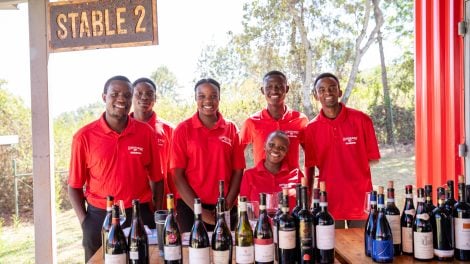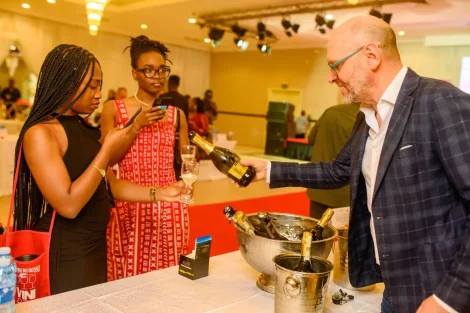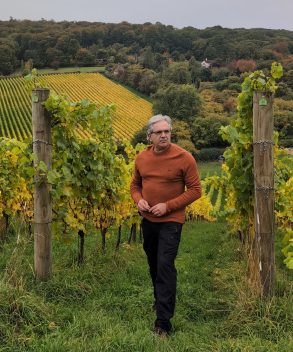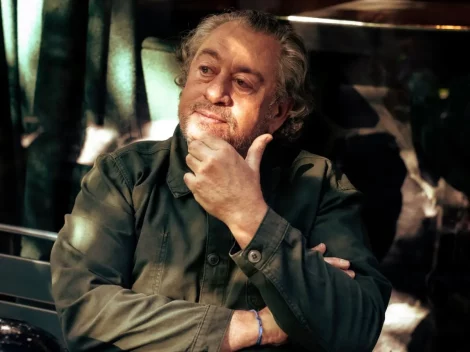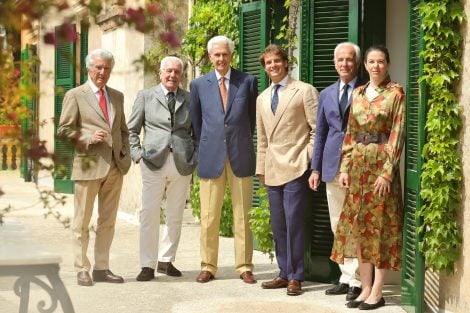One of the best pizzas in America is made by a young woman in a remote little town in Mississippi. Marisol Doyle was born in Mexico but has lived in the United States for several years. And the town where she now lives isn’t “remote” in a figurative sense—it truly is: Cleveland, about half an hour’s drive from the mighty Mississippi Delta (the Big River sung about by Johnny Cash), has roughly 12,000 residents and isn’t what you’d call an attractive destination. When you arrive, everything feels stretched out—the expanses of corn and soy fields at the city’s edge are hypnotic, and then the main road is flanked by small wooden houses with no fences. The further you go, the more it resembles a severe provincial road.

Sunset over the Mississippi Delta
You get out of the car, look around unsure—right, left—you’re in Cleveland, but you’re not entirely convinced. The usual European city reference points are missing: no squares, no districts—it’s all huge, a space that especially disorients Italian visitors. Traffic lights break up the seemingly endless vertical roads, and Cleveland develops along one of them. It is technically a city, but it feels like a vast suburb. And yet, incredibly, you can eat one of the best pizzas in the United States right here.
Soul of America
In short, Cleveland is a small suburb with shops, petrol stations, gigantic supermarkets—you can easily get lost inside Walmart—austere motels with smoking rooms, frequented by the same smokers who sometimes lean on the railings. Here, the health-conscious lifestyle of cities like New York doesn’t exist. And then there’s the six o’clock downpour that turns this small town into a tropical destination.
It’s worth the trip, because Cleveland, like other small towns in the Delta, expresses the true soul of the American South. Brutal in its simplicity, dignified in its poverty, full of farms run by Trump-supporting farmers—those the Democrats disparagingly call “rednecks.”
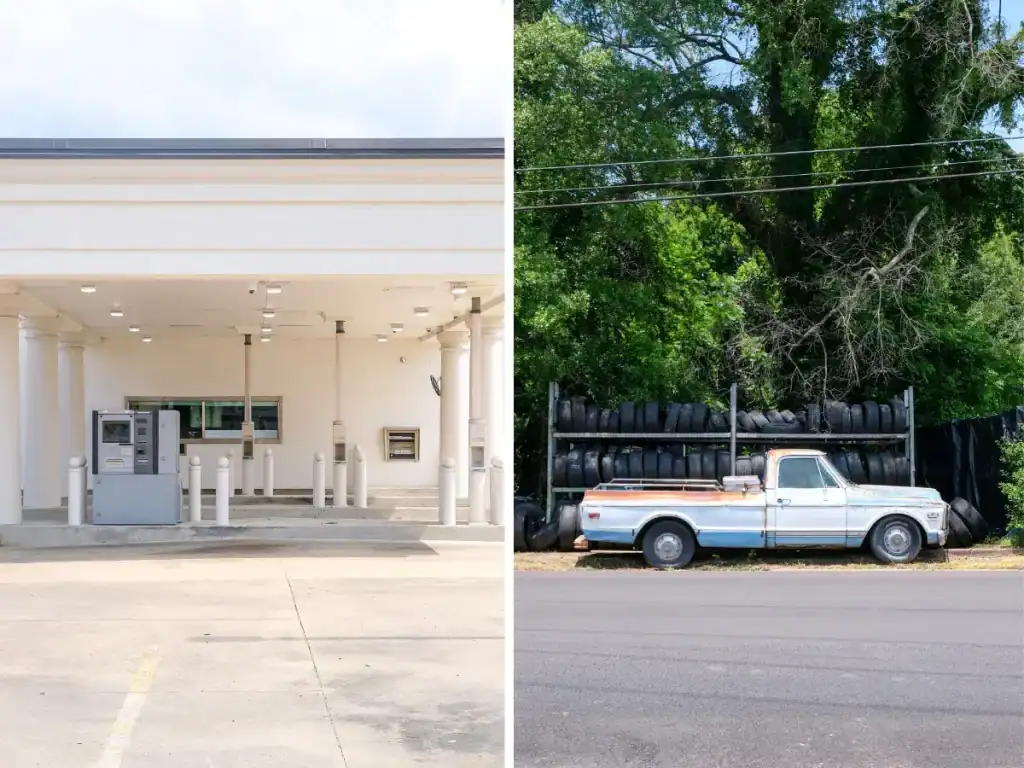
On the left, a petrol station in Cleveland; on the right, a typical Southern US pick-up truck
Pepperoni Galore
It’s undeniably this backdrop that makes the venture by this young pizza maker even more remarkable. Along with her husband, Rory Doyle, a talented photojournalist who has contributed to the New York Times, Washington Post and National Geographic (he won a James Beard Award, the Oscar of US gastronomy, for an incredible report on a diner submerged by flooding), she opened a modern pizzeria in the middle of nowhere, where the most popular restaurants are fast food chains. And the result is surprising.
Crispy, light and perfectly baked; a generous helping of pepperoni, just as tradition dictates. Marisol, who studied in Naples, even had a wood-fired oven shipped over from Italy to one of the poorest rural areas in the United States just so she could bake pizza the right way. A true rarity.
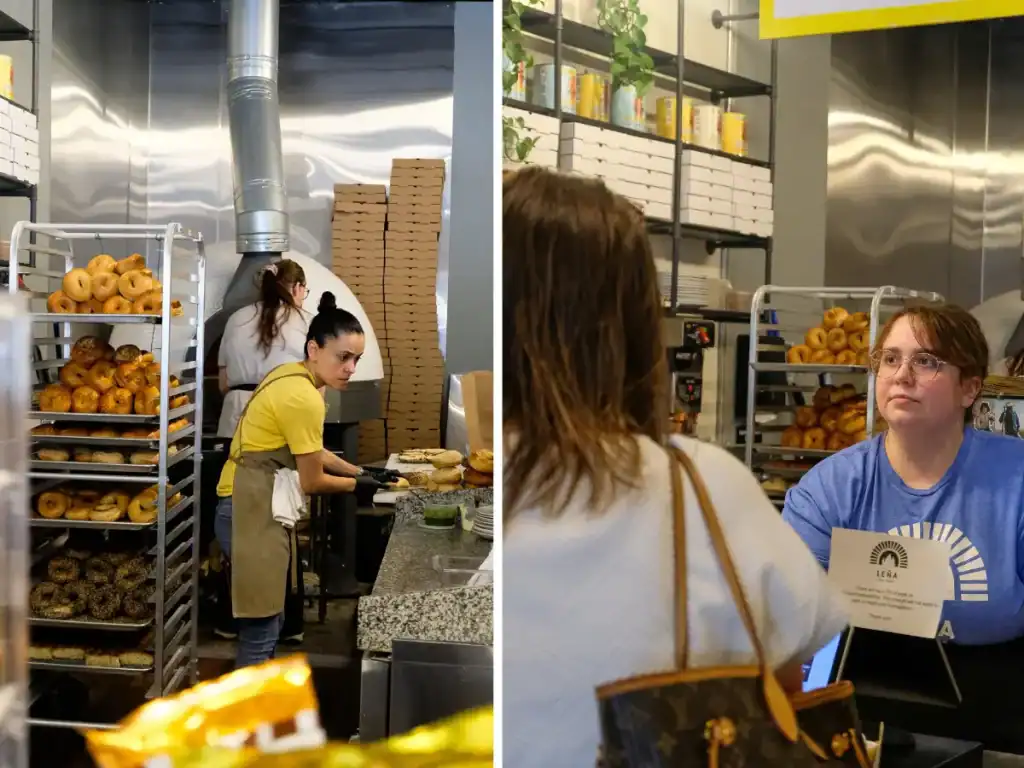
With your pizza, a small container filled with amber-coloured sauce arrives at the table. “It’s hot honey—you can pour it on the pizza or dip the crust in it,” explains one of the smiling girls working at Lena, in Cleveland. Despite initial scepticism, we follow the advice. You eat the first slice and think: this is wild. Then another, and another. Afterwards, you end up back at the mega Walmart you passed on your way in, asking where among the thousands of shelves you can find Mike’s hot honey, as recommended by the kind waitress. It’s the most authentic souvenir to bring home.
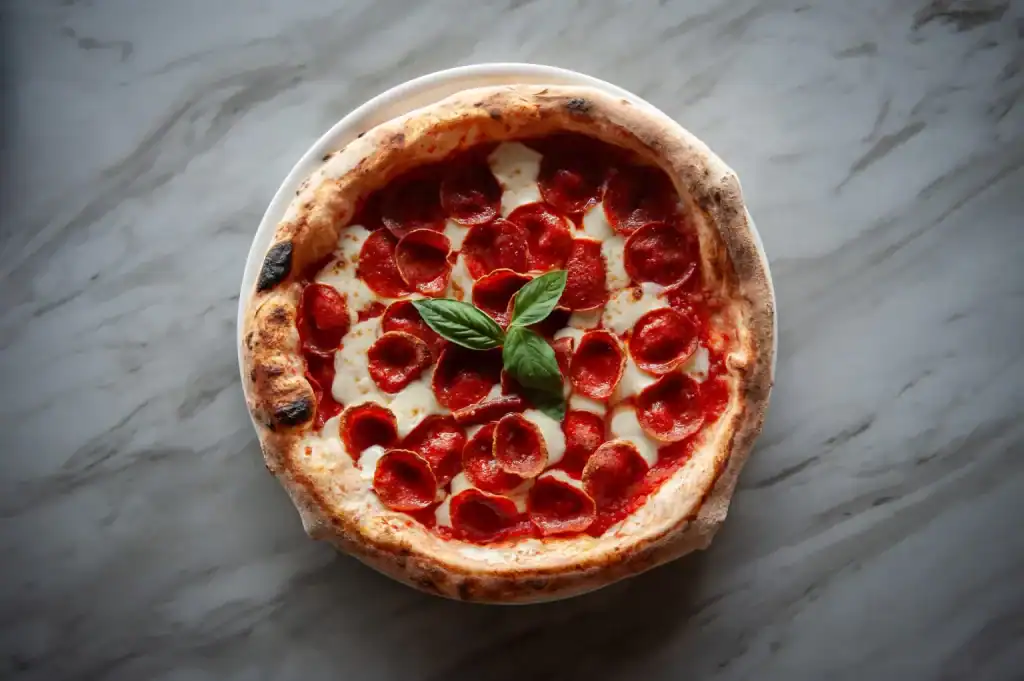
Marisol is always there in front of the oven, every single day, stretching and baking dough with the help of a few colleagues. That too is rare, considering how many star pizza chefs spend more time outside their restaurants than in. And then there’s the female presence —so many women working in the same place is refreshing. It’s beautiful to see a woman wielding the pizza peel, doing the same job as her male counterparts without being cast as a heroine for it. How wonderful it would be if pizza were no longer considered a man’s domain. Thankfully, there are examples out there, but we’re still too timid.
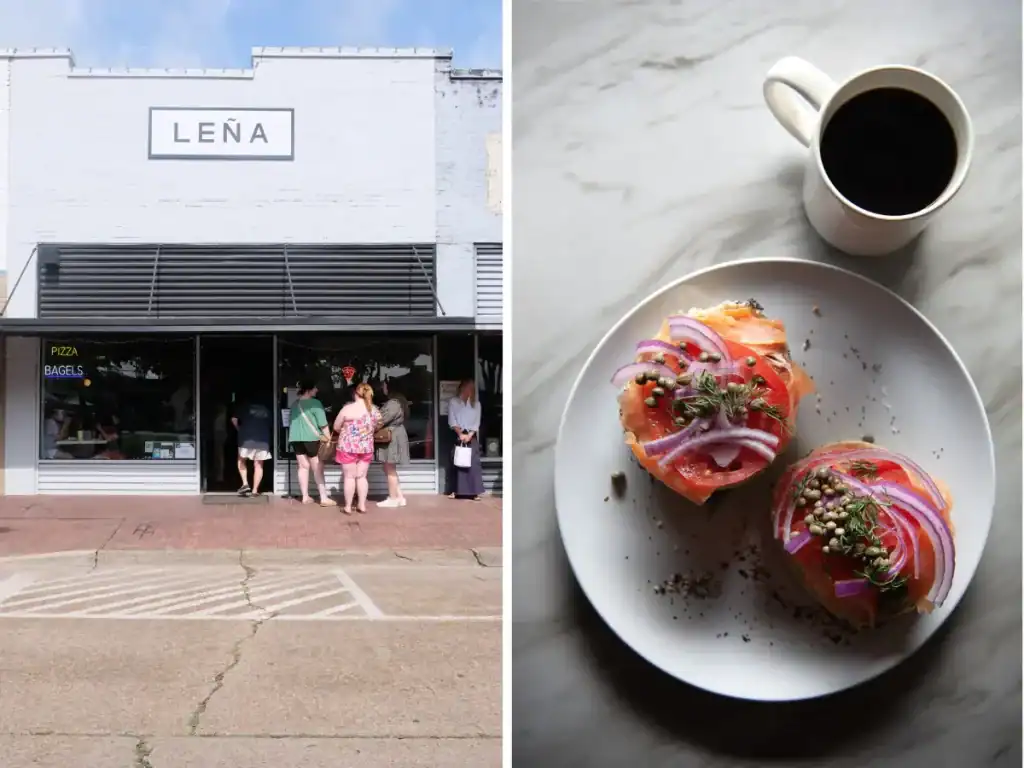
On the left, the entrance to Lena; on the right, Marisol’s artisanal bagel with salmon and crème fraîche.
Lena is a special place. Locals come for many reasons, including the bagels served only on Saturday mornings. And perhaps this is the best time to conduct a little anthropological study of small-town America—just as it’s the best time to grasp the small revolution Marisol has sparked. Dozens of families gather here, queuing for half an hour or more just to taste the amazing artisan bagels. Perfectly shaped, elastically chewy, smooth and golden on the surface. Little masterpieces. The fillings are plentiful, as are the varieties: plain, seeded, whole grain. You must try the classic bacon and egg (a-b-s-o-l-u-t-e-l-y s-t-u-n-n-i-n-g) and the more Nordic option with salmon, onion and capers. Very good.
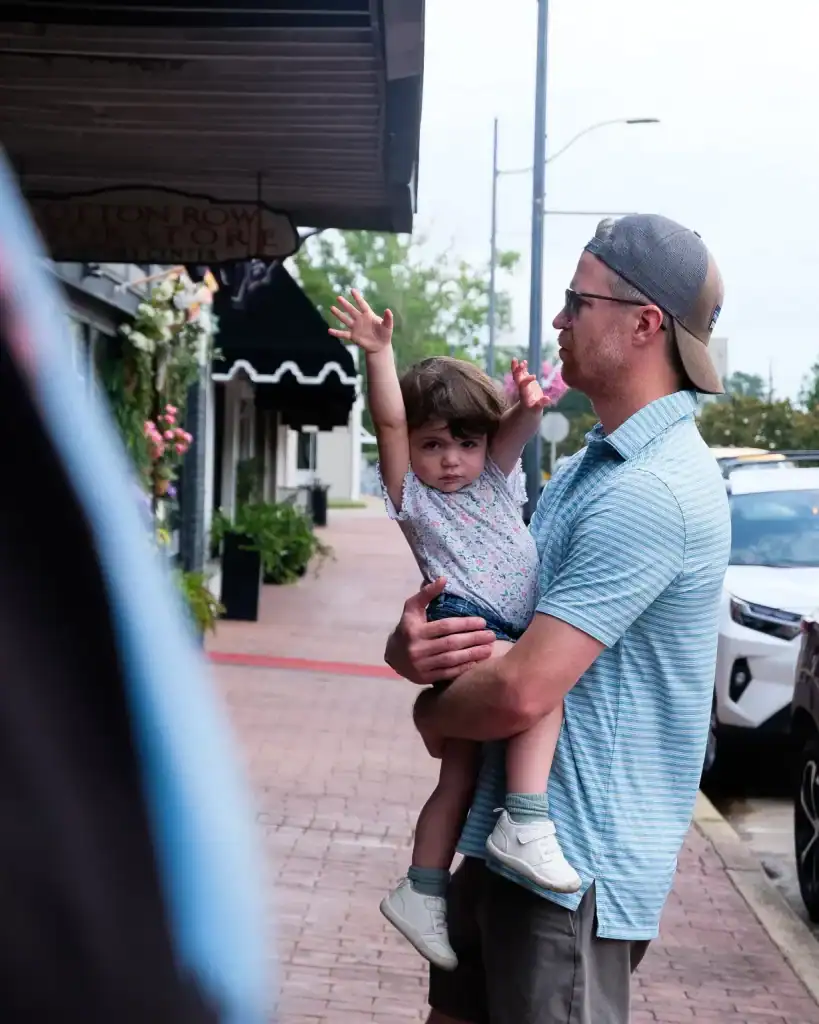
One of the families in line at Lena.
As we said, there are queues. All sorts of people show up. The average customer is a provincial American who lives in a big wooden house, families with kids, singles with colourful hair, local farmers looking for a break. Friends and pals. There are very few tourists—practically imperceptible—and that’s probably what makes the place so special: authentic in its anonymity. Lena welcomes everyone, and it closes when the bagels run out, so arriving early ensures you can snag one.
Guitars and giant watermelons
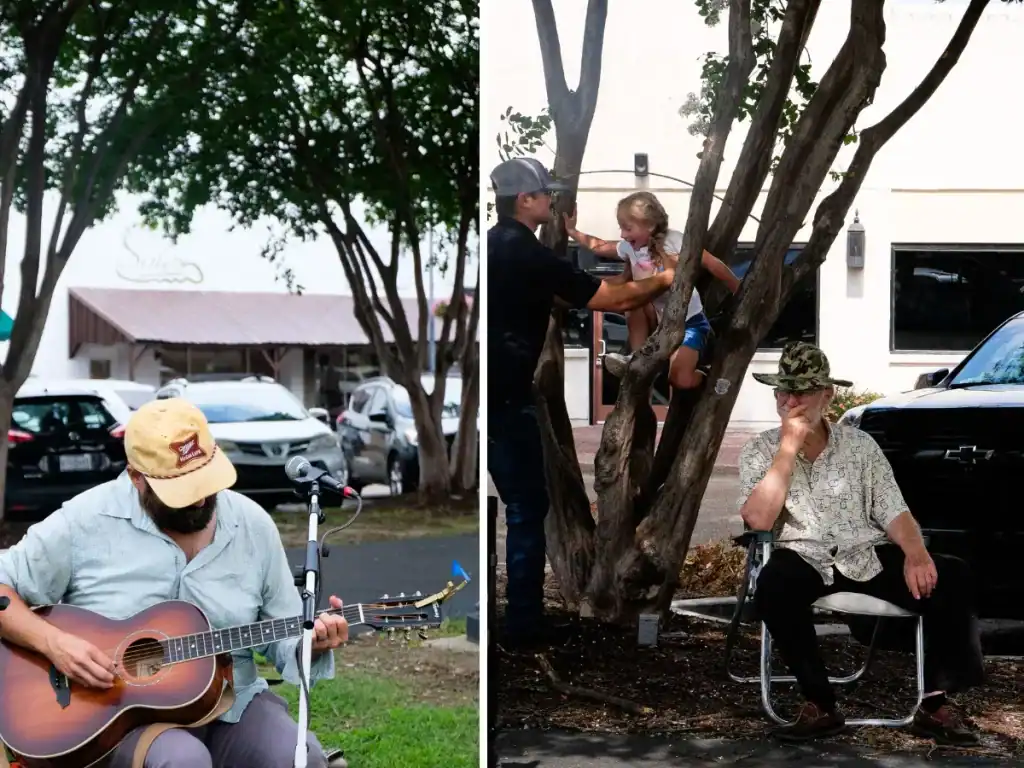
Saturday mornings here are special—there’s a vibe you won’t find anywhere else. The local-accented English becomes a melodic hum, even if incomprehensible. Before queuing, some wander around the little park opposite, made up of a few oak trees, a square of lush grass and a couple of wooden tables. On either side, small local shops: a bookshop open for just three hours a day, a few unpretentious boutiques, a toy shop.
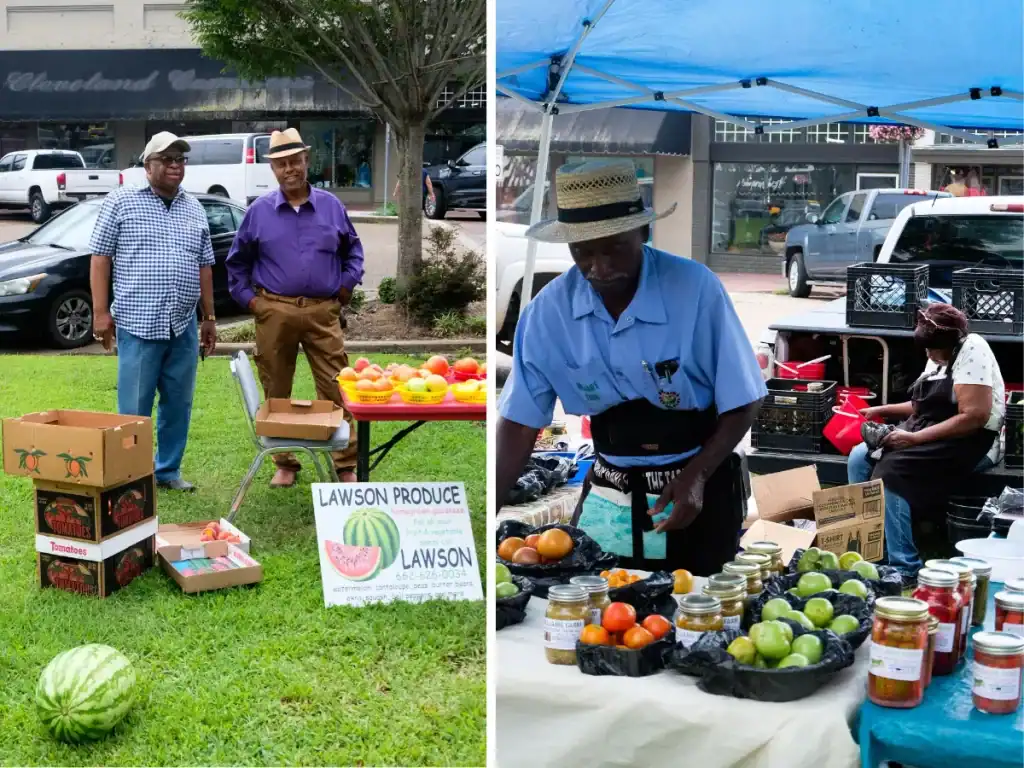
Some of the stalls at Cleveland’s Saturday market.
But it’s right in front of Marisol’s spot that a classic American market unfolds—stumbling upon it is a stroke of luck. A handful of stalls, spaced far apart—there’s never any shortage of space—some selling jam, others ridiculously expensive soaps and scented candles, and others with vegetables picked from nearby, or preserves from local farms. Giant watermelons, fish that look like oranges.
And of course, music—so much music—just like the rest of Mississippi, or indeed much of the Southern US. Eric Clapton classics are the most popular, but now and then someone belts out a Bruce Springsteen number—the Boss, as he’s called around here—and just like that, it’s a party.
In this remote setting, a young woman with her pizza has shown extraordinary courage. I’ll be back.
Photos by the author
Cover photo and pepperoni pizza: Rory Doyle

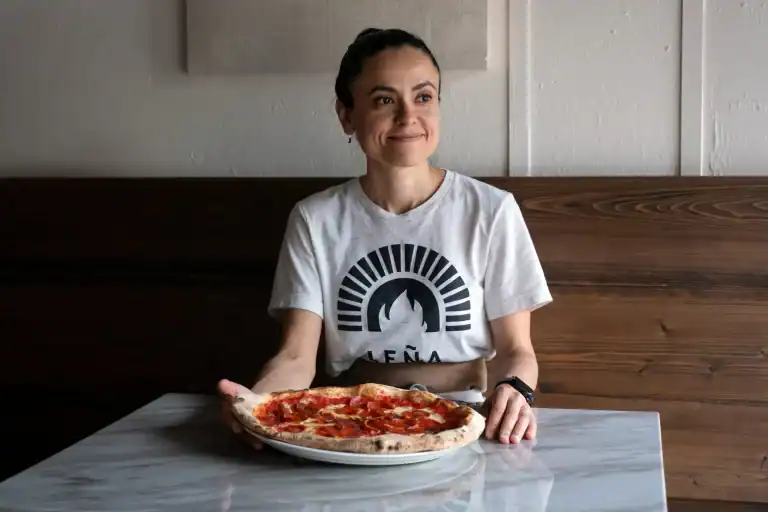
 'You cannot imagine how magnetic Etna is!'
'You cannot imagine how magnetic Etna is!' 'To be the global platform, we must take everyone and everything into account'
'To be the global platform, we must take everyone and everything into account'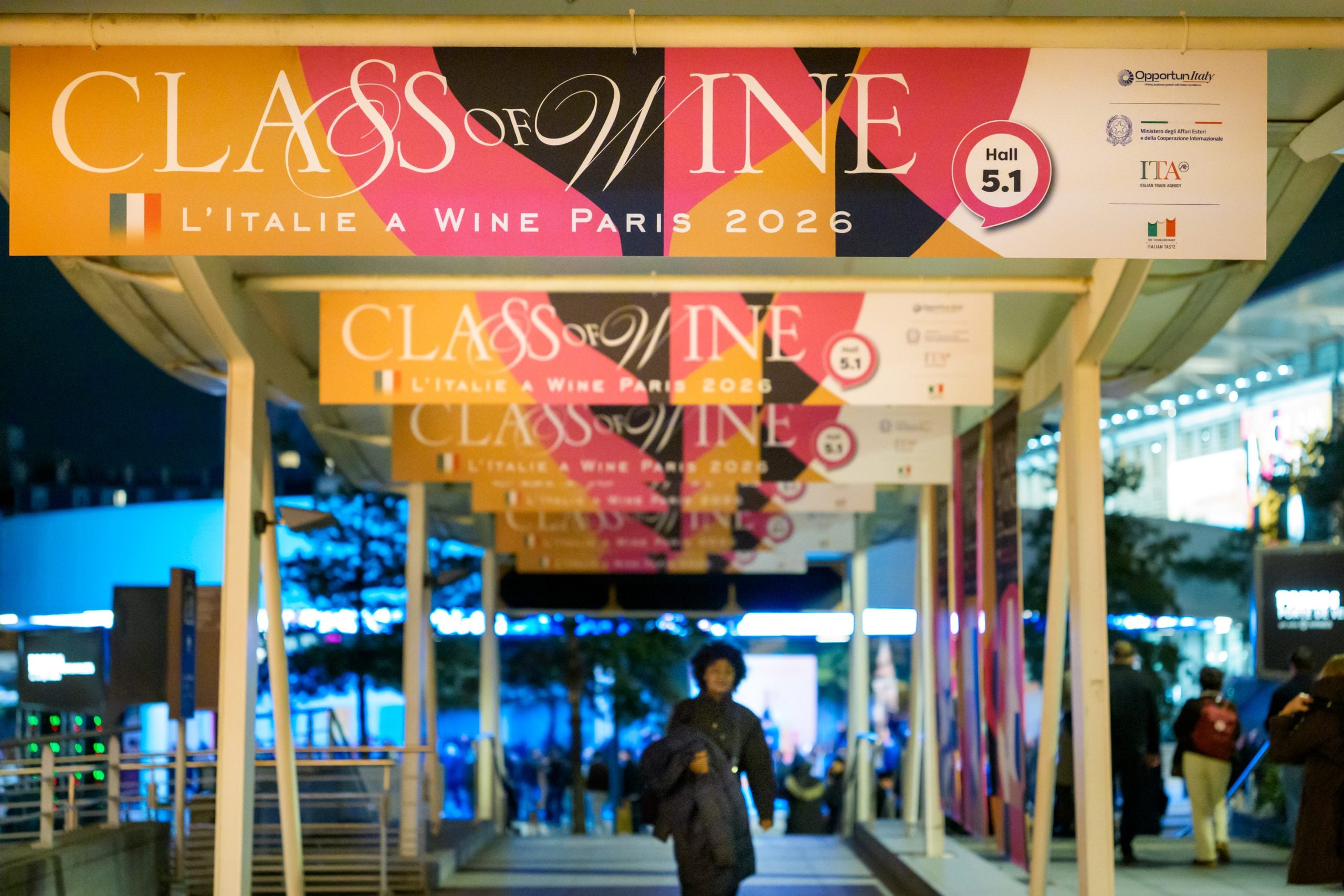 What did Italian producers think of Wine Paris 2026?
What did Italian producers think of Wine Paris 2026?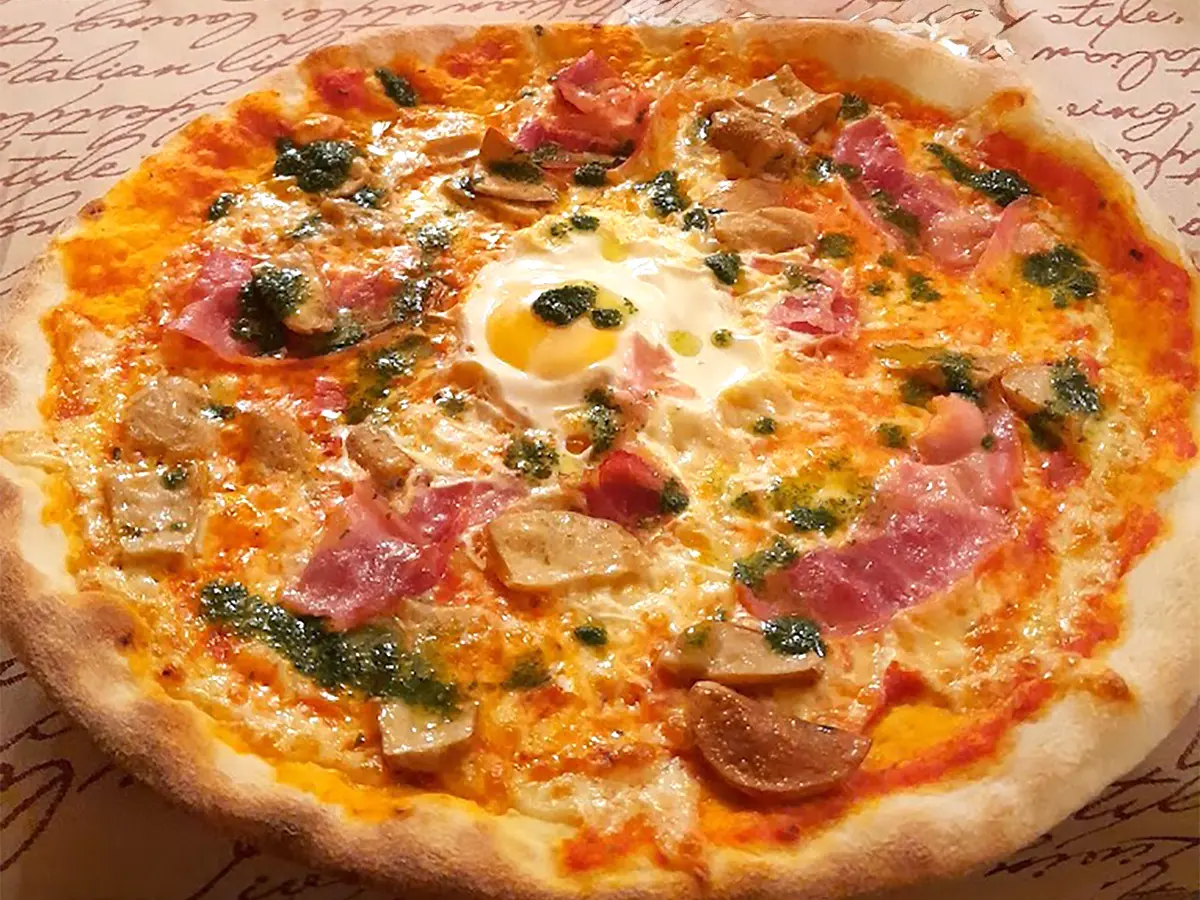 The pizza that’s taking the Winter Olympics by storm
The pizza that’s taking the Winter Olympics by storm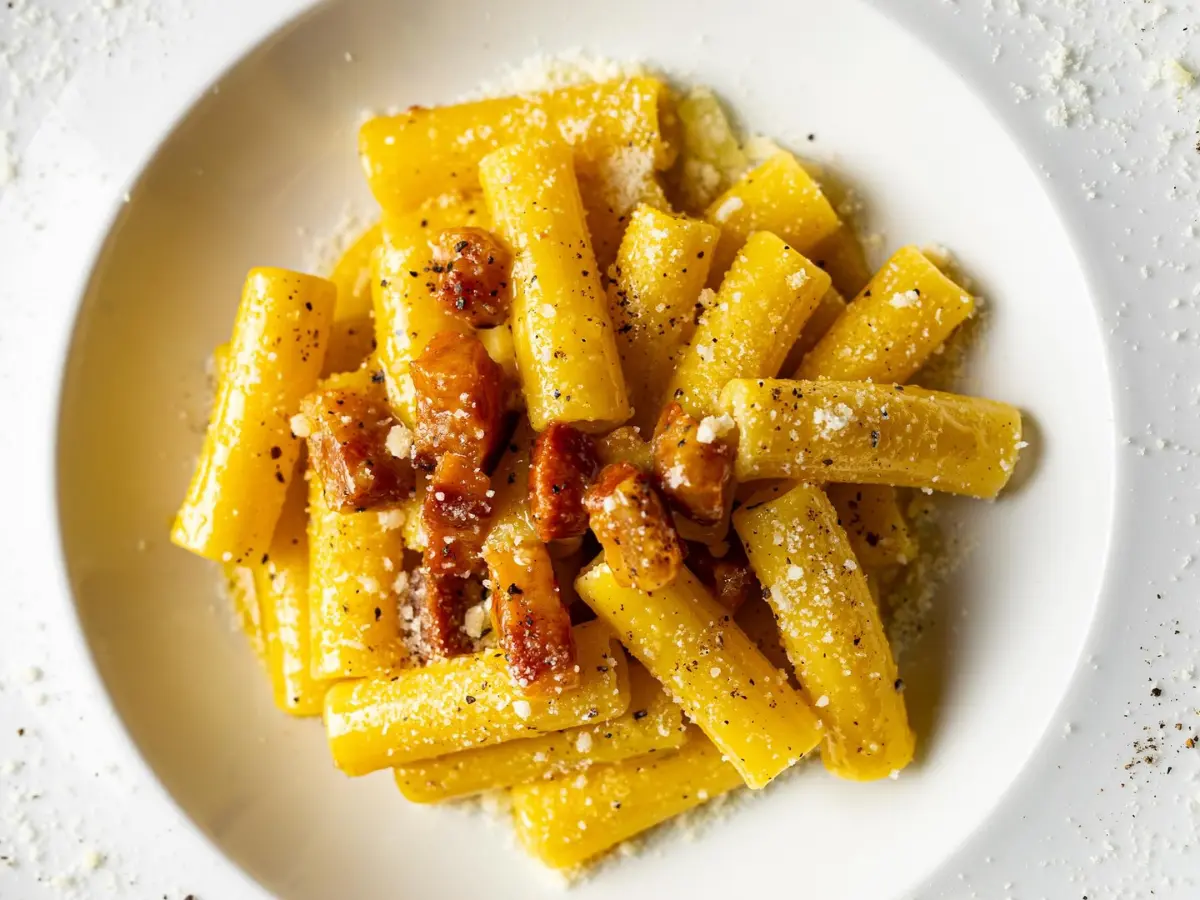 Where to eat in Central Rome (while avoiding the tourist traps)
Where to eat in Central Rome (while avoiding the tourist traps)